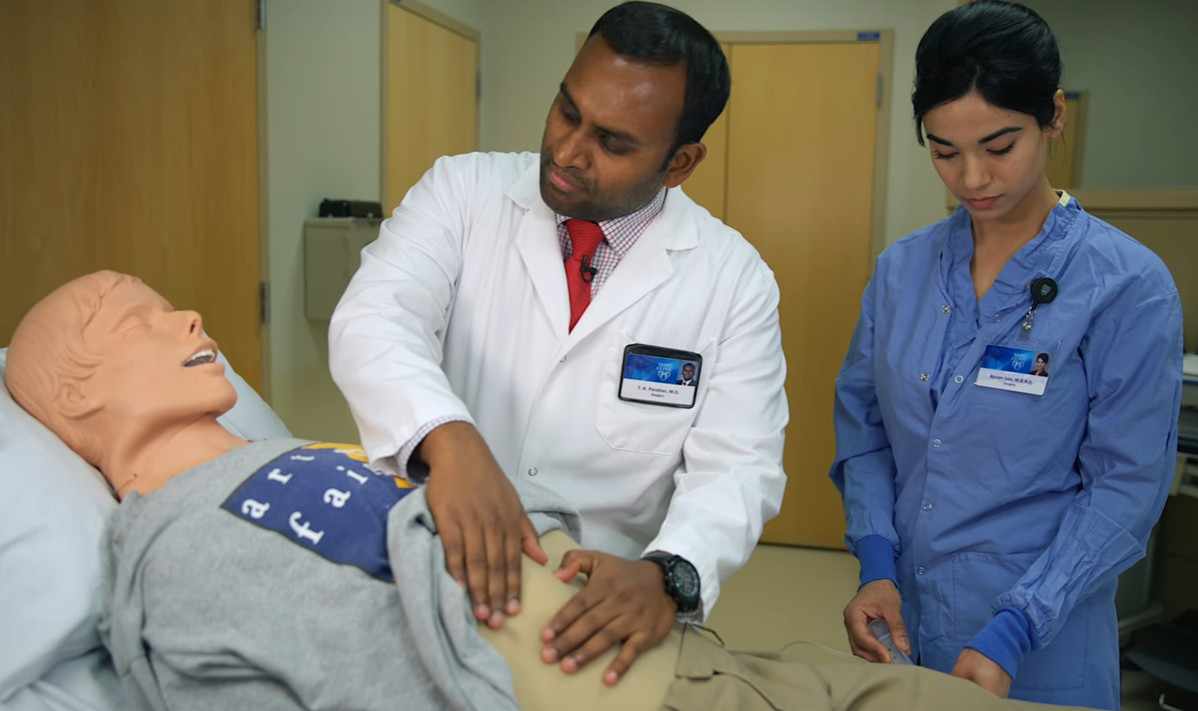-
Saving Lives With Gus: Incarcerated Hernia

An inguinal hernia occurs when tissue, such as part of the intestine, protrudes through a weak spot in the abdominal muscles. The resulting bulge can be painful, especially when you cough, bend over or lift a heavy object. An inguinal hernia isn't necessarily dangerous. It doesn't improve on its own, however, and can lead to life-threatening complications.
If you aren't able to push the hernia back in, the contents of the hernia can be trapped (incarcerated) in the abdominal wall. An incarcerated hernia can become strangulated, which cuts off the blood flow to the tissue that's trapped. A strangulated hernia can be life-threatening if it isn't treated.
This Saving Lives with Gus video is designed to educate, entertain and deliver life-saving tips with high-tech mannequins.
Journalists: The broadcast-quality video pkg. (3:25) is in the downloads.
Signs and symptoms of a strangulated hernia include:
- Nausea, vomiting or both
- Fever
- Sudden pain that quickly intensifies
- A hernia bulge that turns red, purple or dark
- Inability to move your bowels or pass gas
If any of these signs or symptoms occurs, call your doctor right away.







